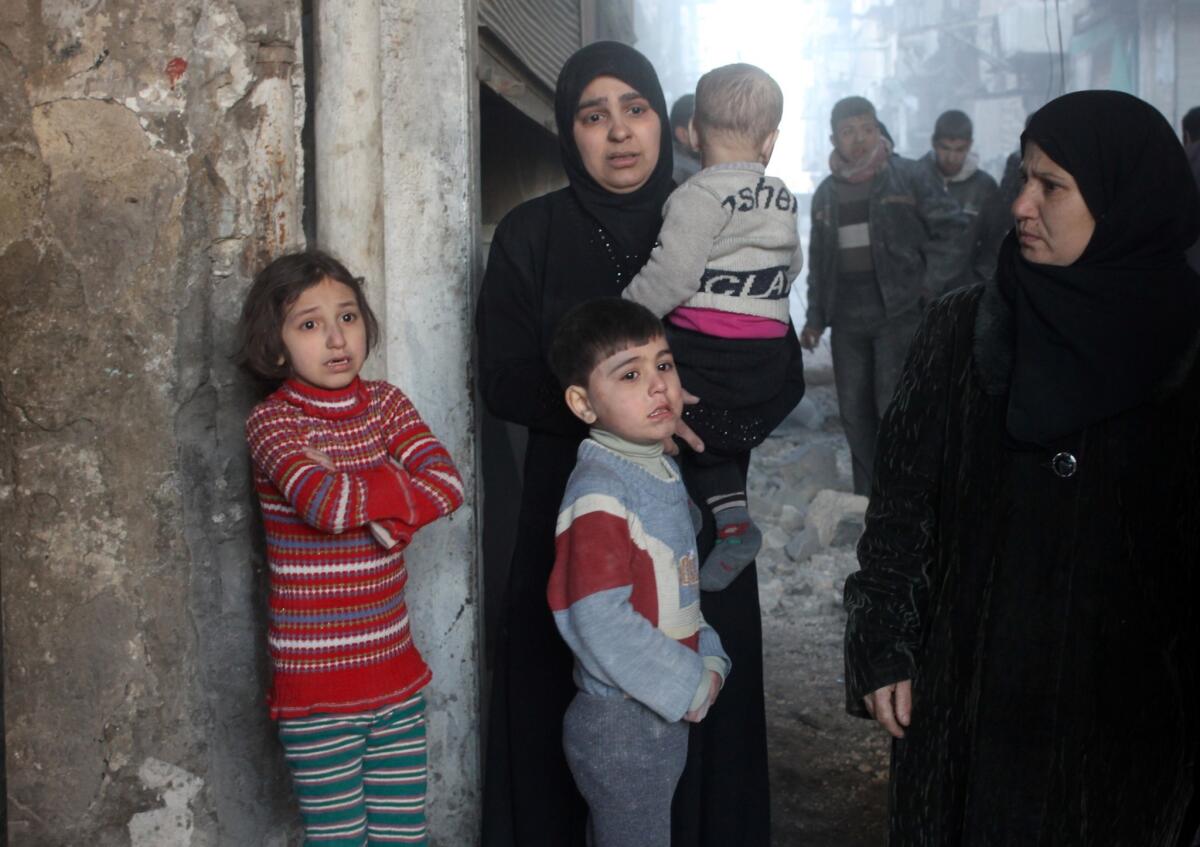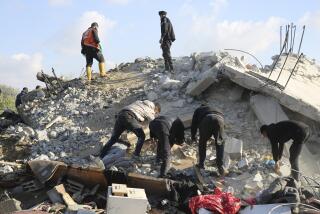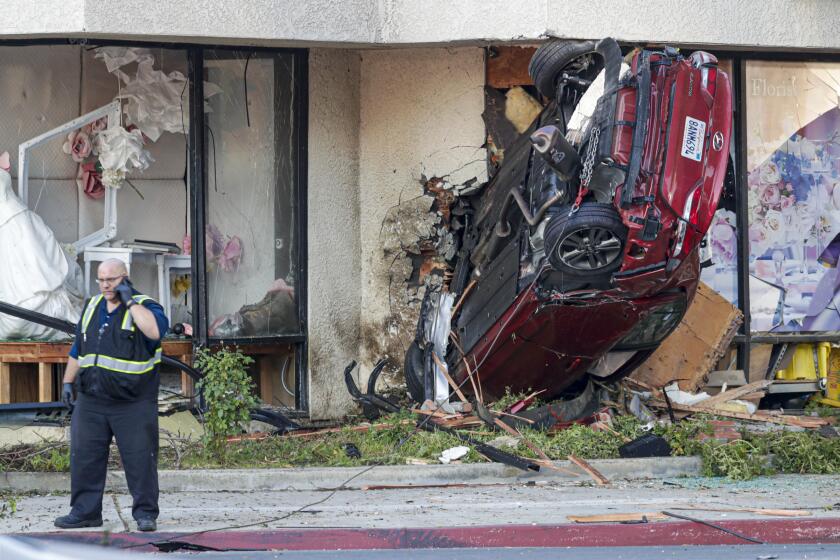Syria’s horrific war on its own children

For some children in Syria, the civil war is a particular kind of hell. The details of a United Nations report released last week are chilling and gut-wrenching, and go far beyond the kind of civilian slaughter that accompanies shelling of residential neighborhoods — a reproachable hallmark of the fighting in that country. Despite encountering significant hurdles in reaching witnesses, U.N. investigators documented cases in which children as young as 11 were subjected to sexual attacks, their fingernails being pulled, electric shocks to genitalia and beatings. Some of the torture was aimed at forcing information out of adult relatives; in one instance, a man reported that his wife and three children were shot dead in front of him.
Many initial news stories on the U.N.’s findings seemed to split responsibility for the atrocities between the government forces and the rebels. Opposition atrocities should be cataloged too, but the report clearly puts the preponderance of blame on the army, intelligence forces and pro-government militias. Finding and holding accountable those responsible for these acts, which the report says occurred “in contravention of international law,” will be no easy task.
Complicating the situation are the delicate diplomatic maneuvers underway to try to bring about a cease-fire in a war that has cost an estimated 130,000 lives and that threatens to spread beyond Syria’s boundaries. Arguments have been made that President Bashar Assad must be tried for war crimes over his forces’ use of chemical weapons, but any attempt to bring him to justice will probably have to await the conclusion of negotiations to end the violence and find a political solution. Ending the war is the immediate priority.
As a practical matter, too, it’s unclear whether the International Criminal Court will ever see a case against Assad. Because Syria is not a signatory to the court, it would take a referral from the U.N. Security Council to prosecute him. That isn’t likely to happen as long as Russia, which has a veto on the council, continues to support Assad. Yet Russia’s support might not extend to lower-level officials in his government.
Still, atrocities against children in their homes, on the streets and in detention centers are being committed by individuals and, presumably, ordered by commanders. The U.N. is doing the right thing in amassing and preserving what evidence it can now, and should take whatever additional steps it can to seek justice. There may never be an accounting in court, but the world owes it to the victims to try. And, at the very least, to bear witness.
More to Read
A cure for the common opinion
Get thought-provoking perspectives with our weekly newsletter.
You may occasionally receive promotional content from the Los Angeles Times.






